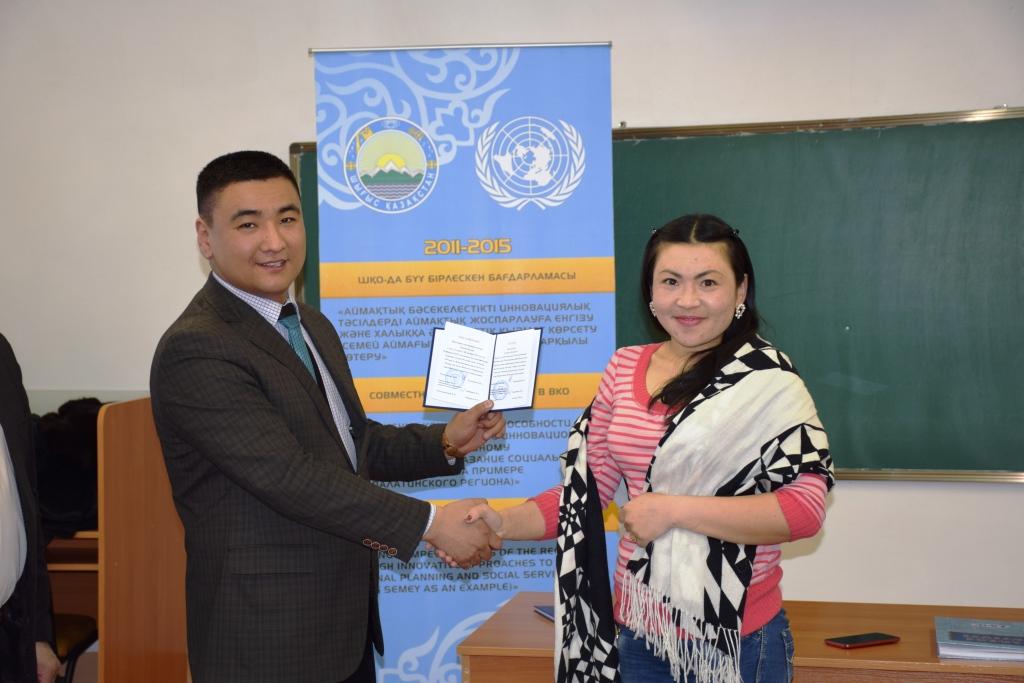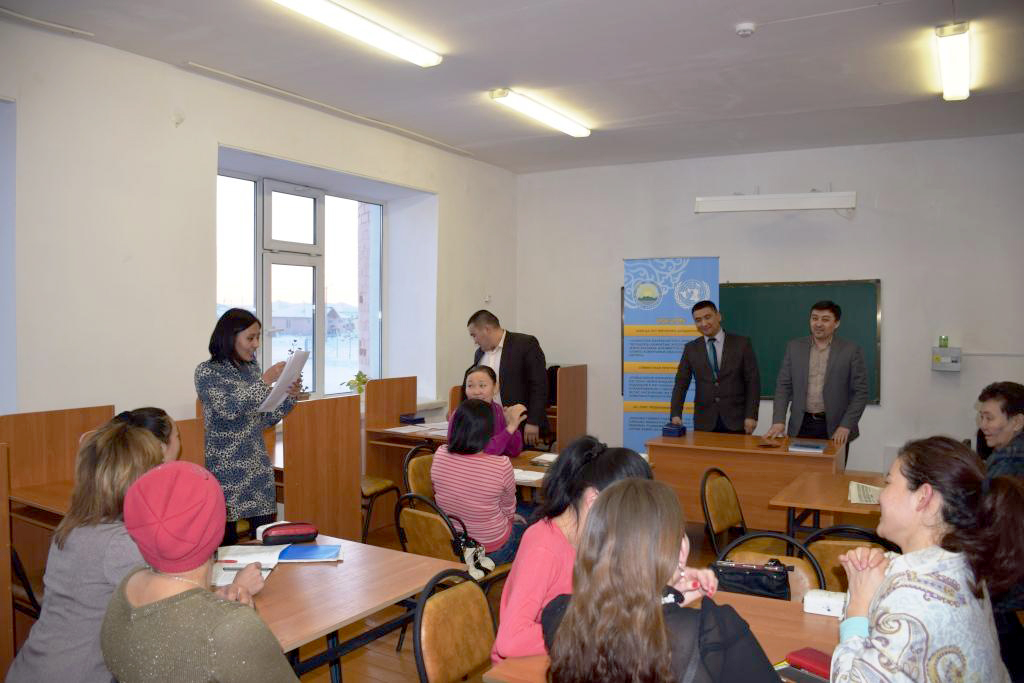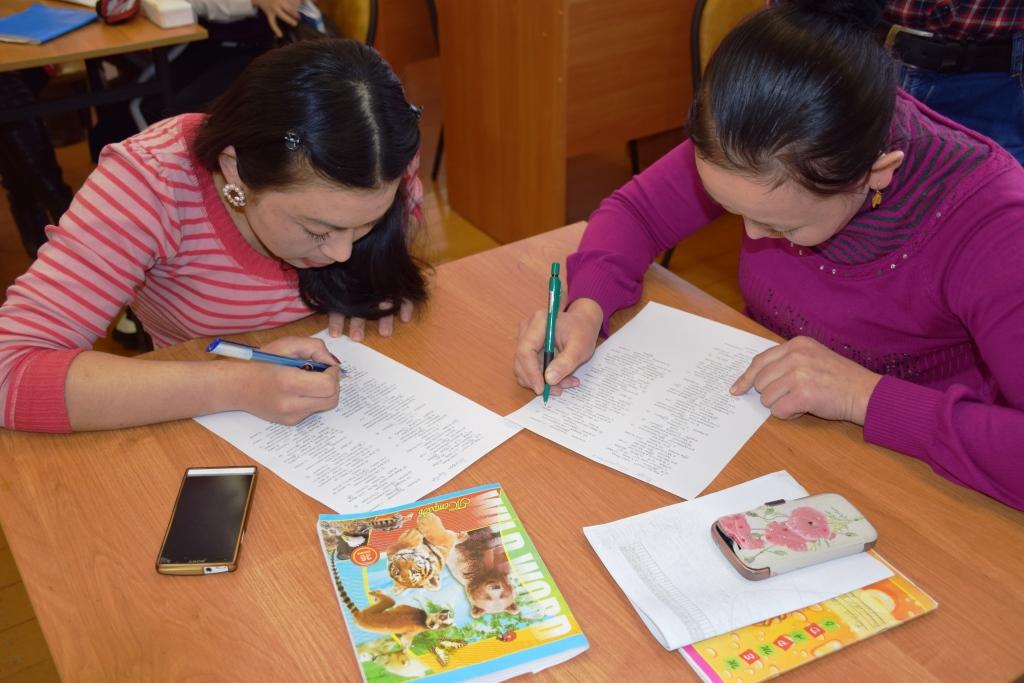ASTANA – Individuals who were once students are now serving as teachers.
Classes in Russian and computer literacy, provided under the United Nations Development Program (UNDP), are being taught in East Kazakhstan by oralmans, ethnic Kazakhs who have immigrated to the country from neighbouring lands since its independence in 1991. The courses are unique, as the instructors themselves were once oralmans, according to UNDP report.
Hanan Bakhytgul, who formerly lived in Mongolia, teaches Russian. She noted her fellow oralmans did not understand simple words and often had difficulty with tasks such as completing bank forms. As teaching is her occupation, she felt she could provide assistance and her intention became personal and professional.
“I had a mind to help them. I can say that knowing languages makes you a real citizen,” said Bakhytgul in an April 14 interview. “A great number of claimants sought this position, but I was appointed.”
Oralmans, which is translated as returnees, are the descendants of those who left Kazakhstan during the 1930s during the Stalinist purges and the collectivisation drive that led to the great famine of 1932-33. It is estimated that more than one million Kazakhs, who were forced to abandon their traditional nomadic lifestyle and give up their livestock, died during these tumultuous years, while hundreds of thousands of others emigrated to neighbouring countries such as Mongolia, China or Iran.
The classes, which started in March, were attended by 42 oralmans who moved from China, Mongolia, Uzbekistan and Russia. The course was organised by the Kazakh Law Academy Institute of Advanced Training in Semey. The programme was designed by the candidates in science based on the specifics of the trained audience, with the teachers selected on a competitive basis. Computer science was taught by Manap Kerey, who like Bakhytgul immigrated from Mongolia.
East Kazakhstan is home to both Kazakh and Russian-speaking populations and the repatriates deal with the language and low computer literacy barrier. Despite the fact that all the students work during the day, they have found time to attend the three-month courses scheduled in the evenings, as quoted by the UNDP report.
Since its 2011 beginning, the UN Joint Programme in the region has actively worked to promote the adjustment of repatriates. UNDP opened the centre of integration and adaptation of oralmenin 2009. In the first three years, UNDP joint programme staff organised a series of educational systems on training and employment of repatriates and attracting teachers from universities and high vocational schools.
The first classes were quite basic, as oralmans from China and Mongolia were unable to read, write or speak Russian, said Bakhytgul. Lessons often began by teaching letters, as oralmans use the Roman alphabet and were unfamiliar with the Cyrillic one.
“The peculiarity of the lessons for oralmans was in a very low level of Russian. It would be better to say that the level was equal to zero,” she added. “Sometimes they came to the city and asked me the meaning of some words. Pronunciation and stress were very complicated for them, too, but by finishing the courses they understand each other in Russian.”
The language is as critical as it is complicated for oralmans, as Russian is very popular in East Kazakhstan. Learning computer skills is equally important and similar to the linguistics classes, the students had “a low level or zero level of computer literacy,” said Bakhytgul. They are taught how to use Microsoft Word, Microsoft Excel and the Internet.
“They learn it like little children,” she added.“Our teacher had to teach them from the ground up.”
 The students are typically 20-45 years old, although Bakhytgul had one pupil who was a 55-year-old man, a seller who needed to know Russian. A large number of students initially enrolled in the courses, but many were forced to stop because of work and other reasons.The teacher is satisfied with the results, however, noting the education will continue as there are many people who want to study.
The students are typically 20-45 years old, although Bakhytgul had one pupil who was a 55-year-old man, a seller who needed to know Russian. A large number of students initially enrolled in the courses, but many were forced to stop because of work and other reasons.The teacher is satisfied with the results, however, noting the education will continue as there are many people who want to study.
“I think that three months is a sufficient period of time necessary for education. My students learned to make conversation,” she said. “One of my students, a woman, came to me and said that she spoke to a passerby and asked him about the street they were on.”
At the closing ceremony, the oralman students said that there is a need to learn English and expressed gratitude for the courses which are essential to improve their lives in their historic homeland. One of the participants, Muratkhan Meseyhanuly, wrote a poem where he shared his challenges in communicating with the local people and thanked UNDP for an opportunity to speak Russian and use the computer in his work, according to the UNDP report.



